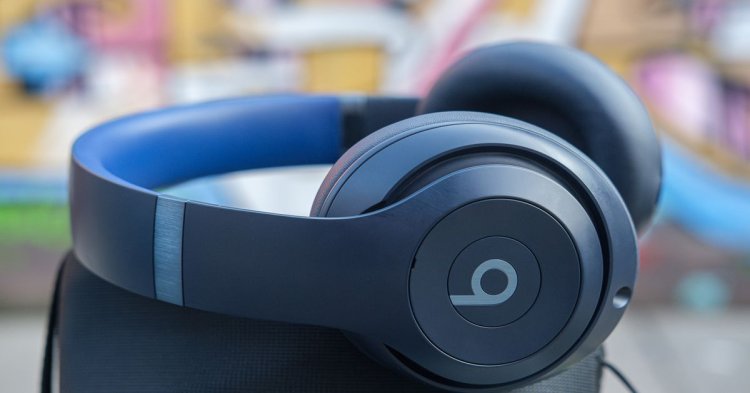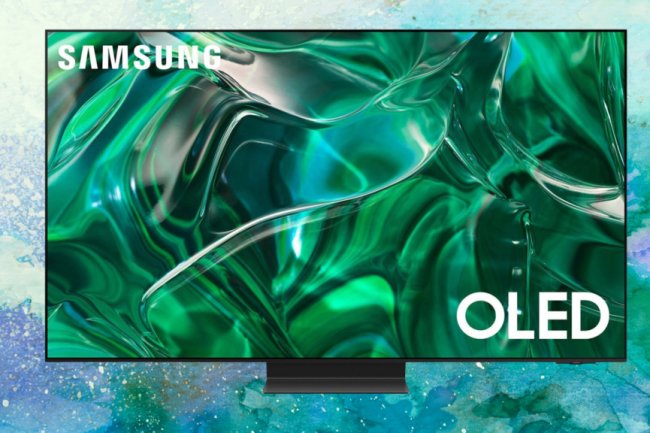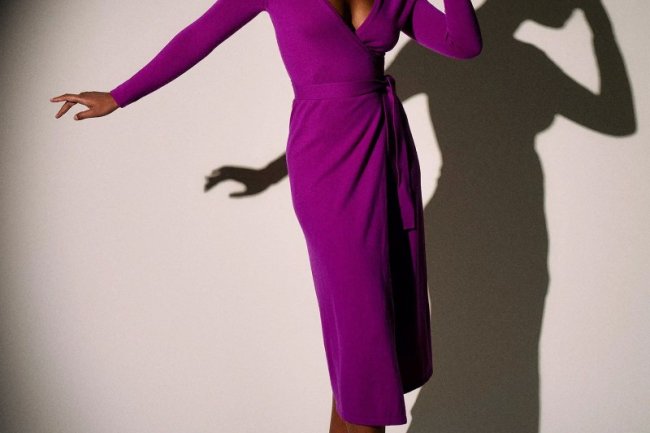Beats Studio Pro headphones review: leaning on a legacy
They look like a lazy refresh from the outside, but the noise-canceling Studio Pros include a ton of new features like transparency mode and lossless USB-C audio. And they solidify Beats’ unique appeal as a dual-ecosystem brand. How long can a headphone design remain iconic? If you recycle it too many times over the years, at what point does it begin to feel stale and phoned in? These are the questions I’ve been grappling with while reviewing the new $349.99 Beats Studio Pro headphones. Pull these noise-canceling cans out of the box, and they unabashedly look and feel just like the Studio 3s (released in 2017) that they’re replacing; Beats’ design language extends back much further than that. This company has never strayed far from the style that has brought it such cultural cachet and high-profile visibility with celebrities and sports stars, and it’s not about to start now. The form is familiar, but Beats has completely reworked the audio architecture inside the Studio Pro headphone

They look like a lazy refresh from the outside, but the noise-canceling Studio Pros include a ton of new features like transparency mode and lossless USB-C audio. And they solidify Beats’ unique appeal as a dual-ecosystem brand.
How long can a headphone design remain iconic? If you recycle it too many times over the years, at what point does it begin to feel stale and phoned in? These are the questions I’ve been grappling with while reviewing the new $349.99 Beats Studio Pro headphones. Pull these noise-canceling cans out of the box, and they unabashedly look and feel just like the Studio 3s (released in 2017) that they’re replacing; Beats’ design language extends back much further than that. This company has never strayed far from the style that has brought it such cultural cachet and high-profile visibility with celebrities and sports stars, and it’s not about to start now.
The form is familiar, but Beats has completely reworked the audio architecture inside the Studio Pro headphones. It has piled on new features like transparency mode, personalized spatial audio, and even lossless music playback over USB-C. And this Apple-owned company is continuing to market itself as a dual-ecosystem solution with native support for both iOS and Android software features.
But none of those things are noticeable at first blush. These are still Beats headphones, meaning there’s some creak to them as you unfold the ear cups. They’re very plasticky minus the metal hinges and headband slider, and there’s still a stronger than normal level of clamping pressure when you place them on your head. In hand, they simply don’t come across like $350 headphones. The new side-loading carrying case is nice, as is the fact that it includes both a 3.5mm headphone cable and USB-C cord with pockets for each. Either can be used for audio transmission, which is a first for a Beats (or Apple) headphone.
/cdn.vox-cdn.com/uploads/chorus_asset/file/24796013/DSCF2596.jpg)
There are some improvements to the fit and finish; Beats has switched to a new ear cushion that it’s calling UltraPlush, which combines memory foam padding with an outer layer of “engineered leather” that doesn’t have any visible seams or stitching. The company believes this will lead to improved long-term durability, but for now, we’ll have to take Beats’ word on that. I’ve had issues with past Beats headphones where the synthetic leather top layer would detach and start to pull away from the headphone, so hopefully that won’t be the case here. As a heavy sweater, I’ve already been a tad nervous wearing these around NYC during a hot July. Unfortunately, the UltraPlush ear pads aren’t officially replaceable, and Beats won’t be selling spares. So if something goes awry, you’ll need to get them repaired or seek out aftermarket options.
/cdn.vox-cdn.com/uploads/chorus_asset/file/24796030/DSCF2658.jpg)
/cdn.vox-cdn.com/uploads/chorus_asset/file/24796027/DSCF2648.jpg)
The Studio Pros have custom 40mm drivers that are “engineered for optimal clarity, with near-zero distortion even at high volume,” according to Beats’ press release, and the goal here isn’t to relentlessly assault your ears with bass, either. Anyone still going by that outdated perception of the company’s sound signature is overdue for another listen. These over-ears aim for “a powerful, yet balanced sound profile crafted to bring out the subtle details of whatever you’re listening to.”
And yeah, pair those revamped drivers with new micro-vents and acoustic mesh inside the headphones and clarity across the volume range is definitely a key strength of the Studio Pros. It’s been ages since I’ve used the Studio 3s, but I remember some fuzziness and imprecision to them. These don’t suffer from any of that no matter what volume you’re listening at. But their balanced tone might disappoint Beats loyalists who are looking for more energy and kick from their cans. And when lined up against audio-first headphones like the $399 Bowers & Wilkins PX7 S2 or $380 Sennheiser Momentum 4s, the Studio Pros fail to measure up in dynamics and overall definition. Beats has crafted a perfectly decent-sounding pair of headphones, but there’s nothing that leaps out as special about them.
/cdn.vox-cdn.com/uploads/chorus_asset/file/24796024/DSCF2628.jpg)
/cdn.vox-cdn.com/uploads/chorus_asset/file/24796022/DSCF2623.jpg)
They do at least have a strong showing when it comes to active noise cancellation. Just like Apple, Beats claims the Studio Pros analyze your surroundings tens of thousands of times per second — marketing gobbledygook that no average person could ever possibly verify — but the upgraded microphone array did a good job of cutting down the clamor at my local coffee shop in the middle of a weekday. Transparency mode is also quite good. Even if it’s a step below the $200 more expensive AirPods Max, your surroundings come through sounding natural, crisp, and without any noticeable latency. Battery life still tops out at 40 hours with noise cancellation turned off and around 24 hours if you’ve got it on (or are using transparency mode).
Focusing on those elements of the headphones alone, the Beats Studio Pros are a modest upgrade with improved sound and the all-important addition of transparency passthrough. But two other things make this product a little more notable than they otherwise would be.
/cdn.vox-cdn.com/uploads/chorus_asset/file/24796025/DSCF2641_Enhanced_NR.jpg)
Apple is using Beats as its first foray into USB-C audio
When connected to a source device over USB-C, the Studio Pros support lossless and high-res audio playback up to 24bit / 48kHz from compatible sources like Apple Music, Amazon Music, Tidal, Qobuz, and others. Curiously, when USB-C playback is active, you lose all access to noise cancellation and transparency modes. This is by design, according to Beats, but I’m still confused as to why or what technical limitation forces you to choose between ANC or richer audio. Either way, if you’re hoping to have a hi-fi listening session on a plane, be prepared for some background cabin hum to bleed through. Even more strange is that noise cancellation and transparency do work over a regular old headphone jack connection, so USB-C is the odd one out.
But it gets more interesting than that — and this is where I suspect we’re seeing Apple… erhm, Beats, sorry… toy with the possibilities that are unlocked by USB-C audio. When in wired USB-C mode, the Studio Pros can toggle between three sound profiles targeted at different use cases. The default Beats Signature profile is tonally balanced for music playback. But there’s also Entertainment, which widens the sound stage and boosts certain portions of the frequency curve for a more immersive movie-watching experience. And the last, Conversation, adjusts the EQ and frequency response for clearer voice calls and more pleasant, less fatiguing podcast listening. These are only available over USB-C; they don’t work when listening via Bluetooth or even with the 3.5mm headphone jack. (They do work with non-Apple devices, if you were curious.)
/cdn.vox-cdn.com/uploads/chorus_asset/file/24796016/DSCF2605.jpg)
You switch between these profiles with a double-press of the power button. Simple enough, and it’s obvious when you’ve landed on Conversation mode because music quickly falls flat. But it can be harder to distinguish between the Beats Signature and Entertainment profiles by ear alone. The only way to know for certain is by checking the circular LEDs on the right ear cup: if the one in the center is illuminated, you’re in Beats Signature mode. If three of them are lit up, that’s Entertainment mode. I really wish Beats would add some actual speech feedback here — just tell me what mode I’m in — instead of using impossible to decipher bloop tones as you cycle through these profiles.
Clumsy execution aside, these sound profiles are a fascinating idea, and it’s not hard to imagine Apple bringing specialized USB-C audio modes to a future pair of the AirPods Max after the iPhone lineup makes that long-awaited transition. It’s a bit weird that they’re not available wirelessly, but at the same time, I don’t hate it — might as well give people a reason to plug in and get better audio quality for the effort.
/cdn.vox-cdn.com/uploads/chorus_asset/file/24796015/DSCF2603_Enhanced_NR.jpg)
Beats is becoming Apple’s Android brand — and not being subtle about it
It’s been a recurring theme lately: Beats is highlighting its dual-ecosystem proprietary chip that supports native software features on both iOS (expectedly) and Android (not so expectedly). This isn’t the first Beats product to offer such cross-OS compatibility; the Studio Buds and Studio Buds Plus were the company’s previous experiments. But the Studio Pros take it up a notch — particularly by tacking on even more Apple-centric features without giving up the Google tricks.
For example, these headphones support spatial audio with dynamic head tracking. Until this point, that feature has been reserved exclusively for the AirPods lineup and the Beats Fit Pro (which are powered by the H1 chip) — but not anymore. There’s a gyroscope in the Studio Pros that, when used in conjunction with an Apple product like an iPhone or iPad, tells that device how it’s moving in space. So as you listen to spatial audio on Apple Music or watch a movie on Netflix, the sound will change as your head shifts around. And the Studio Pros even gain personalized spatial audio, where you can use an iPhone’s TrueDepth camera to optimize the performance based on your own head shape.
/cdn.vox-cdn.com/uploads/chorus_asset/file/24796020/DSCF2613.jpg)
/cdn.vox-cdn.com/uploads/chorus_asset/file/24796021/DSCF2614.jpg)
Here’s a rundown of what the Studio Pros offer from each walled garden:
iOS ecosystem features
- One-touch pairing
- iCloud device synchronization
- Hands-free “Hey Siri”
- Personalized spatial audio
- Dynamic head tracking for spatial audio
- Find My
- OTA firmware updates
Android ecosystem features
- Fast Pair
- Automatic pairing with Android and Chrome devices signed in to your Google account
- Audio switch: seamlessly transition between an Android phone and Chromebook, etc.
- Find My Device
- OTA updates with the Beats app for Android
On the Apple side, you do lose out on certain features like audio sharing, but I’d say Beats has struck a good balance in trying to appeal to both crowds. No one gets everything, but everybody gets a few nice bonus capabilities. And the important part is that these are native features — not proprietary clones that many third-party headphone makers come up with. One frustrating omission regardless of which platform you’re using is ear detection; the Studio Pros won’t automatically pause the music when you remove them or resume when you put them back on.
/cdn.vox-cdn.com/uploads/chorus_asset/file/24796056/DSCF2625_2.jpg)
They’ve got a very similar design to predecessors, but the Beats Studio Pro headphones manage to deliver a unique mix of features and several firsts for Beats and Apple, respectively. Even as it continues trying to appeal to the Android universe, Beats is going deeper into the Apple ecosystem with features like dynamic head tracking. And these are the first Apple headphones to offer genuinely lossless USB-C audio. If either of those appeals to you, the Studio Pros are worth trying at your local Best Buy or Apple Store. But for most general buyers, they don’t excel at sound or ANC enough to lift them above Sony’s WH-1000XM5s.
I understand that this design is iconic and has a cultural legacy, but I can’t help but wonder what a bold reset from Beats would look like. The company is at its best when venturing into new territory, whereas the Studio Pros feel beholden to the past, and in some ways, they come out worse for it. I have no doubt they’ll soon be everywhere on the heads of musicians and athletes — same as ever — but I think it’s possible to get a little more daring while staying true to where you came from.
Photography by Chris Welch / The Verge
Correction, July 19th 11:45AM ET: The article previously stated that dynamic head tracking was a feature exclusively available on the AirPods lineup. But the Beats Fit Pro are also supported. We regret the error.
What's Your Reaction?













